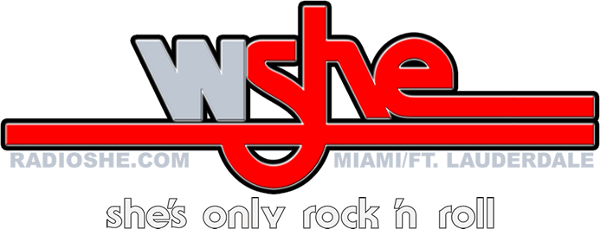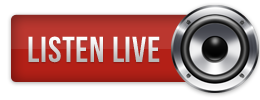
SHE IS RADIO FLORIDA | SHE FLORIDA RADIO | SHE MIAMI RADIO
#SHE1035 #SHE103 #SHE #103SHE
WSHE MIAMI / FT LAUDERDALE

In the early 1960s, Gregg Allman got a guitar for Christmas and his brother Duane got a Harley 165 motorcycle. Eventually Duane traded the wrecked bike parts for a guitar and Gregg began to teach him. By 1961, the brothers were playing at teen dances around Daytona Beach, where they had lived since 1959. By 1963, they were in a band called “the House Rockers” before evolving into “The Allman Joys”. The band toured bars in the South East and made their first single, a remake of “Spoonful” by Willie Dixon.
By the late ’60s, the group moved to L.A. and signed with Liberty Records, who renamed them “Hour Glass”. By Gregg’s account, this was one of the low points of the brothers careers, as they had very little income. For the cover photo of their debut “Hour Glass” album, the group was taken to a costume shop and dressed in fancy, pre-20th century outfits. The liner notes described the music within as “Psychotic phenomenon, from rhythm and blues to driving psychedelic beats. And soul…reeking of soul”. The album consisted of over-produced, pop-vocal tunes, complete with overpowering horns and backup singers.
The band had no control over the material that appeared on their albums. As Duane said, “They’d send in a box of demos and say, ‘Okay, pick out your next LP.’ We’d try to tell them that wasn’t where it was at. Then they’d get tough, and said “You gotta have an album, man. Don’t buck the system.” We figured maybe we could squeeze an ounce or two of good out of this crap”.
Duane returned to Florida in a funk, but things would soon brighten for him. He would meet the drummer from a band called “The 31st of February”, Butch Trucks. At the same time, there was a band playing the area called “Second Coming”, that was lead by Dickey Betts, and featured a bassist named Berry Oakley. Duane and Butch had also been jamming on occasion with another area drummer, Jai Johanny Johanson.
Around this same time, the young Duane Allman had been creating quite a name for himself as an in- demand session player. His guitar work adorned records by people like King Curtis, Percy Sledge, Aretha Franklin and Wilson Pickett. But Duane would always return home to Jacksonville to jam with his buddies, and during one memorable session in “the Green House”, the nucleus of the Allman Brothers Band was formed. A call to Gregg, who was still in California, to “come home” was all that was needed to complete the group.
Less than a year later, the band was picked up by Phil Walden, who would act as both their manager and their record label CEO. Phil asked the band to relocate to Macon, Georgia. Everyone was impressed that Duane could catch the ear of the late Otis Redding’s manager. Despite the fact that he was the group’s founder and had a prior reputation, Duane insisted from the start that the brothers were to be equals.
They pooled their money and rented a house at 309 College Street in Macon, Georgia. They slept on six mattresses Walden provided, and plowed all of their money back into the band. The musicians jammed together a lot, occasionally going to nearby Rose Hill Cemetery to play acoustic guitar and write songs. In fact, reported Twiggs Lyndon, the band’s original road manager, most of the songs on the first Allman Brothers album were written at Rose Hill.
Duane returned to Muscle Shoals, while the Allman Brothers were still rehearsing to record with Boz Scaggs, in May 1969. “Finding Her”, which contains some sophisticated slide, climaxes with Duane using his Coricidin bottle to produce the far-away bird sounds that later show up in Layla, Mountain Jam, and several other cuts.
The Allman Brother’s debut album on Capricorn Records, “The Allman Brothers Band” was recorded in 1969 and won excellent reviews. The band began their first national tour in support of the record. As the 1970’s began to roll in, the band was doing well. Their second album, “Idlewild South” was selling briskly, as the Brothers toured the states relentlessly.
Over 1970s Fourth of July weekend, the Allman Brothers played a two-hour set for more than 200,000 wildly receptive spectators at the Second Annual Atlanta International Pop Festival. They also appeared at the British Isle of Wight Festival in 1970.
Tom Dowd, who had produced “Idlewild South”, was asked to produce a new album for Eric Clapton. When Dowd mentioned that Clapton was coming to town, Duane lit up like a Christmas tree. He picked up a guitar and began playing Clapton licks for Dowd. When Dowd told Clapton there was a musician who would really like to meet him, Clapton said, “Allman… he’s that guy who played all those hot licks on Hey Jude, isn’t he?” A mutual admiration fuelled the sessions of “Layla and Other Love Songs”, released under the name “Derek and the Dominos”.
“I went down there to listen to them cut Layla, that’s what I went for”, said Duane in Guitar Player Magazine. “Heard heard my playing and stuff, and he greeted me like an old partner or something. He says, ˜Yeah man, get out your guitar. We’ve got to play! So I was going to play on one or two, and then as we kept going, it kept developing. Incidentally, on sides 1, 2, 3, and 4, all the songs are right in the order they were cut in from the first day… I’m as proud of that as any albums I’ve ever been on. I’m as satisfied with my work on that as I possibly could be.”
The Allman Brothers Band were a favourite of promoter Bill Graham and in their December 1970 appearance at his Fillmore East, they were in such rare form that they played encore after encore, not giving up the stage to headliner Canned Heat until 3:30 a.m. During their next Fillmore gig, in March 1971, tapes were made for their third album, “The Allman Brothers Live At Fillmore East”. By the time the album reached the Top Ten and achieved “gold” status, the Allman Brothers Band was being hailed in print as ˜America’s best rock & roll group.”
The band seemed on the way to galactic heights when they were rocked by the death of Duane. He lost control of his motorcycle on a Macon street while trying to swerve to avoid a tractor-trailer in October of 1971.
The group played at his funeral and decided to continue without a new guitarist. Three songs on their next LP, “Eat a Peach”, had been recorded before Duane’s death, and with live material from the March Fillmore East concert, the double LP was released in February, entered the charts in the Top Ten, and rose to #4.
In November of 1972, tragedy struck again when bassist Berry Oakley was killed in a motorcycle crash, just three blocks from the site of Duane’s accident a year earlier. Lamar Williams took Oakley’s place.
Dickey Betts, by then the band’s unofficial leader, wrote and sang “Ramblin’ Man,” the band’s first and biggest hit single (#2,1973); “Brothers and Sisters” went to #1. The first two albums, when reissued as “Beginnings”, more than doubled their original sales. The group returned to the road after two years (with Leavell on keyboards, Gregg joined Betts for the twin guitar lines). In Watkins Glen, New York, 600,000 people gathered in July 1973 for an all-day concert by the Allman Brothers Band, the Grateful Dead, and the Band.
There was growing dissension in the group, however. Gregg and Betts began to disagree over schedules and musical direction. In 1974 they each released a Top Twenty solo album (Allman’s Laid Back and Betts Highway Call), and Allman formed the Gregg AlIman Band with Johanson, Leavell, Williams, and others to tour and record “The Gregg Allman Tour”. The subsequent Allman Brothers Band album, “Win, Lose or Draw” (#5, 1975), sold well, but it was four years before the next album of new material; “The Road Goes on Forever” and “Wipe the Windows” are both live collections. By 1975, Allman was involved in an on-again, off-again marriage to Cher (they divorced in 1979), and had a son, Elijah Blue, in 1977. Their 1977 LP “Allman and Woman: Two the Hard Way” was universally panned.
But the greatest blow to the group occurred in 1976, when Allman testified against Scooter Herring, his personal road manager, charged with dealing narcotics. Herring was subsequently sentenced to 75 years in prison. Allman’s action, the others said, betrayed the fraternal loyalty that had sustained them: They vowed never to work with him again.
The members pursued separate but at times intertwining paths. Betts formed Great Southern, duplicating the original Allman Brothers line-up with two guitars, two drums, bass, keyboards, and vocals. Only the group’s first album charted in the Top 100. After Allman’s disastrous duet LP with Cher, he regrouped the Gregg Allman Band, with no help from any former Brothers, and put out “Playin’ Up a Storm” in 1977. The other members also remained active: Trucks studied music at Florida State University for two years and formed an experimental group, “Trucks”. Leavell, Williams, and Johanson, with guitarist Jimmy Nails, formed the fusion-oriented “Sea Level”. Later, Leavell returned to session work, notably with the Rolling Stones, with whom he toured in 1989 and 1994.
In 1978, the Allman Brothers Band regrouped for the first time. After Allman, Trucks, and Johanson joined Betts and Great Southern onstage in New York in 1978, Great Southern guitarist Dan Toler and bassist Rook Goldflies also joined the new Allman Brothers Band. “Enlightened Rogues” (#9, 1979) was gold within two weeks of its release. Two years later, “Brothers of the Road” gave the group a minor hit single, “Straight from the Heart.” The group broke up again in 1980. In 1983 Lamar Williams died of Agent Orange-related cancer. Betts recorded an album with the Dickey Betts Band, and Allman released “I’m No Angel” (#30, 1987) with its #49 title track.
Regrouping yet again in 1989 with core members Allman, Betts, Johanson, and Trucks, the Allman Brothers Band took to the road. “Dreams”, a box set, compiles songs from 1966 to 1988. Their recent albums and performances have earned the group renewed critical respect, especially for Allman’s singing and writing. Allman, who finally won his struggles with heroin and alcohol, has also acted, appearing in the film “Rush” and the syndicated TV series Superboy.
In 1995 the group was inducted into the Rock and Roll Hall of Fame and in 1996 they won the Grammy Award for Best Rock Instrumental Performance for “Jessica”.
In 2000, the band kicked Dickey Betts out for what they called “personal and professional reasons.” For that year’s tour, he was replaced by Jimmy Herring. Betts then filed a lawsuit against the other three original members and the separation turned permanent. “Hittin’ the Note” was released in 2003 to popular and critical acclaim, as was the “Live At the Beacon Theatre” DVD. That same year, Rolling Stone magazine named Duane Allman, Warren Haynes, Dickey Betts and Derek Trucks to their list of the 100 Greatest Guitarists of All Time, with Allman coming in at #2.
2004 brought the live CD “One Way Out”.
The band was back on the road for the 2008 summer amphitheater circuit and later that year they received the Legend Of Live award at the Billboard Touring Awards ceremony in New York. The Allman Brothers Band celebrated their 40th anniversary in 2009 and continued to tour.
January 2013 brought news of a 129-song compilation featuring recordings from Duane Allman’s early garage-rock days in the Allman Joys, The Escorts and The Hour Glass. Also featured are studio sessions with Aretha Franklin, Wilson Pickett, Boz Scaggs, Clarence Carter and others, along with selections from the Allman Brothers Band and his work with Derek And The Dominoes.
2014 saw The Allman Brothers Band mark their 45th year as a group by booking a ten-show residency a New York’s Beacon Theatre beginning March 7th. In early May, Gregg Allman filed a lawsuit in order to stop production on Midnight Rider, a film based on the rock legend’s 2012 memoir, My Cross to Bear, after an accident on the set claimed the life of a camera assistant and injured six others.
In early 2014, Derek Trucks and Warren Haynes announced their intention to leave the band at the end of the current tour, slated to wrap up in New York on October 28. That show may well be the last that The Allman Brothers Band ever play, as the surviving trio of founders, singer-organist Gregg Allman and drummers Butch Trucks and Jaimoe, the guitar team of Warren Haynes and Derek Trucks, along with Oteil Burbridge on bass and percussionist Marc Quinones, lined up onstage and took what they said was their final bow.



